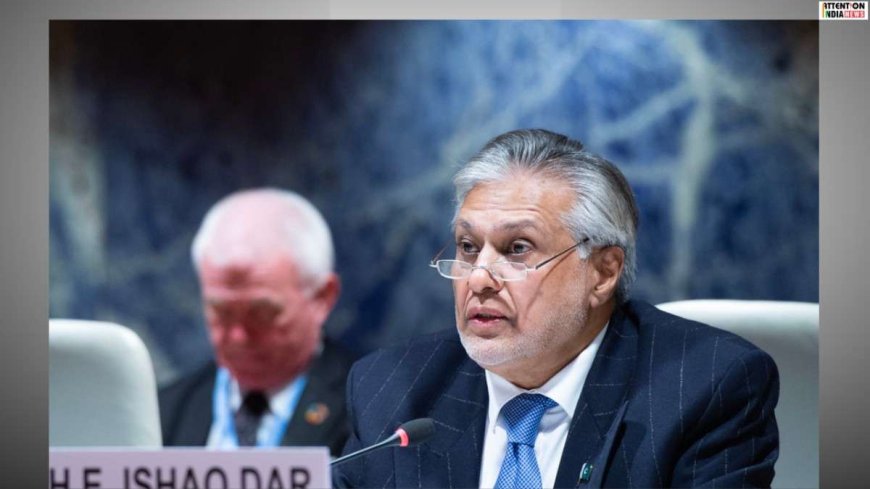Pakistan's Deputy PM Ishaq Dar confirms India’s strikes on two air bases during Operation Sindoor
Ishaq Dar, the deputy prime minister of Pakistan, confirmed that India had attacked the air bases at Nur Khan and Shorkot during Operation Sindoor.

New Delhi (India) June 20: Ishaq Dar, the deputy prime minister of Pakistan, said on Thursday that India had attacked the Nur Khan and Shorkot air bases in Rawalpindi as part of Operation Sindoor, which was carried out in retaliation for the Pahalgam terrorist incident, in which 26 civilians were killed by ISI-sponsored terrorists.
Dar's remarks follow multiple denials by the Pakistani military and administration regarding the extent of the harm done by India's attacks. Dar stated that India acted more quickly and caught Pakistan off guard because the attacks happened as they were getting ready to retaliate.
On the night between May 6 and 7, India launched an attack on the airbases at Nur Khan and Shorkot. In an attempt to stop additional action against Pakistan, Saudi Prince Faisal offered to talk with S Jaishankar, India's minister of external affairs on behalf of Pakistan's deputy prime minister within forty-five minutes of the strike.
Dar said, “Saudi Prince Faisal bin Salman called and asked if he could tell Jaishankar that Pakistan is ready to stop."
This demonstrates how Riyadh quietly but significantly contributed to efforts to reduce tensions between India and Pakistan. Dar went on to say that Islamabad also contacted the US in an effort to prevent India from intensifying its military.
Dar's admission also goes against what Prime Minister Shehbaz Sharif and other senior Pakistani officials had previously said, which is that Pakistan had responded forcefully against India. However, even Prime Minister Sharif now accepts that India launched BrahMos missile strikes that targeted multiple locations.
He confirmed that India's second round of attacks on the evening of May 9–10 prevented Pakistan's plans to launch a response at 4:30 am on May 10. This shows that Indian forces were able to successfully prevent Pakistan's counterattack.
According to Dar's statement, Islamabad desperately sought help in convincing India to stop its "precise, measured, and non-escalatory" kinetic action.
On the deadly nights of May 6 and 7, India launched Operation Sindoor, a quick and well-planned tri-service cross-border attack that targeted nine terror camps located deep within Pakistan and Pakistan-occupied Kashmir as payback for the horrible Pahalgam tragedy on April 22 that killed 26 innocent people.
The Indian Army, Navy, and Air Force killed almost 100 militants and damaged important Lashkar-e-Taiba, JeM, and Hizbul Mujahideen facilities in Bahawalpur and Muridke, Pakistan, in less than twenty-five minutes by deploying SCALP cruise missiles, HAMMER smart bombs, loitering munitions, and ground-to-ground weapons.
A ceasefire was agreed upon by both the nations on May 10 after four days of rising tensions and cross-border strikes.
Aadrika Tayal

 Aadrika Tayal
Aadrika Tayal 





